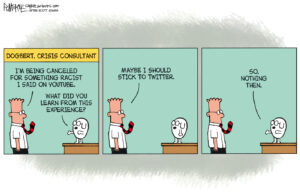The Tea Party: Remember George Wallace
It is refreshing for me to find myself in agreement with "mainstream" Republicans, beginning with House Speaker John Boehner and Rep. Paul Ryan. I think.
It is refreshing for me to find myself in agreement with “mainstream” Republicans, beginning with House Speaker John Boehner and Rep. Paul Ryan. I think.
The subject is the future of the Republican Party or, really, whether the “tea party” has a future.I remember a story Larry King once told me about forgetting and then screwing up a speech he had agreed to give to some sort of Merchant Marine association in Miami. He found himself on stage with no idea where to begin or what to say. So he walked off and was chased into the parking lot by the sponsors, demanding to know how he could do this to them. He rolled down his car window before zooming away and said: “Because the Merchant Marine has no future!”For quite a time, I thought the tea party’s future was worse than that. But it has hung on to the point that Boehner, Ryan and company realize it could end the future of sane Republicanism, which is not all that balanced already.“They pushed us into the fight to defund Obamacare and to shut down the government,” said Boehner. “I just think they’ve lost all credibility.” Ryan, saying he was “frustrated” with the purity demands of the tea partyers, added: “You don’t get everything you want in divided government.” The conservative columnist Linda Chavez called them a “hysterical” bunch who don’t care about winning elections and spend their television time calling Republicans traitors to the cause. She also thinks their main cause is fund-raising.Actually, Boehner and his establishment-oriented company are the ones who sound hysterical at the moment — for good reason. The tea party folk are not attacking Democrats and liberals anymore; they are attacking and planning to run against regular old conservative Republicans in the House and Senate. No one with a title seems safe from this new wave of anti-government populism.So, what next? The most interesting answer I’ve seen is a short essay by Jonathan Rauch of the Brookings Institution. He sees two paths for angry party guys. Will they go the way of the Rev. Jerry Falwell and the Moral Majority of the 1970s, or will they go the way of George Wallace in the 1960s? In brief, Rauch argues that Falwell was pulled into the fold of the Republican Party, but Wallace permanently changed American politics when he left the Democratic Party and became an independent, third-party candidate for president.“In 1968,” Rauch writes, “George C. Wallace, a former Democratic governor of Alabama, led a nationwide populist rebellion among conservatives. Though his American Independent Party presidential campaign drew votes from both mainstream parties, it mainly devastated the Democrats, who never recovered among conservative whites or in the South.© 2014 UNIVERSAL UCLICK
Your support is crucial…With an uncertain future and a new administration casting doubt on press freedoms, the danger is clear: The truth is at risk.
Now is the time to give. Your tax-deductible support allows us to dig deeper, delivering fearless investigative reporting and analysis that exposes what’s really happening — without compromise.
Stand with our courageous journalists. Donate today to protect a free press, uphold democracy and unearth untold stories.









You need to be a supporter to comment.
There are currently no responses to this article.
Be the first to respond.